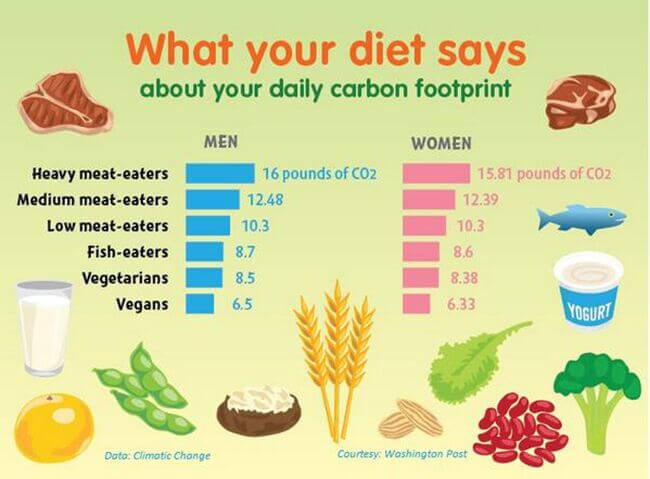My research project topic of climate change and how it relates to food consumption is also related to the idea of everyone’s carbon footprint. A carbon footprint is basically the amount of greenhouse gases produced to support human activities. Everybody’s footprint is different based on their daily activities and lifestyle choices. Carbon footprints affect climate change because they produce greenhouse gases, a.k.a the gases that keep heat in the earth’s atmosphere and produce changes in the climate. I find that differences in carbon footprints when it comes to different diets can be best understood through visual aids. The following charts and graphs compare the carbon footprint/greenhouse gas emissions among different types of eaters. Clicking each photo will lead to the source with more information.
Additional sources on carbon footprints:
http://timeforchange.org/what-is-a-carbon-footprint-definition
http://www.gaiam.com/discover/305/article/carbon-footprint-impact-climate-change/


